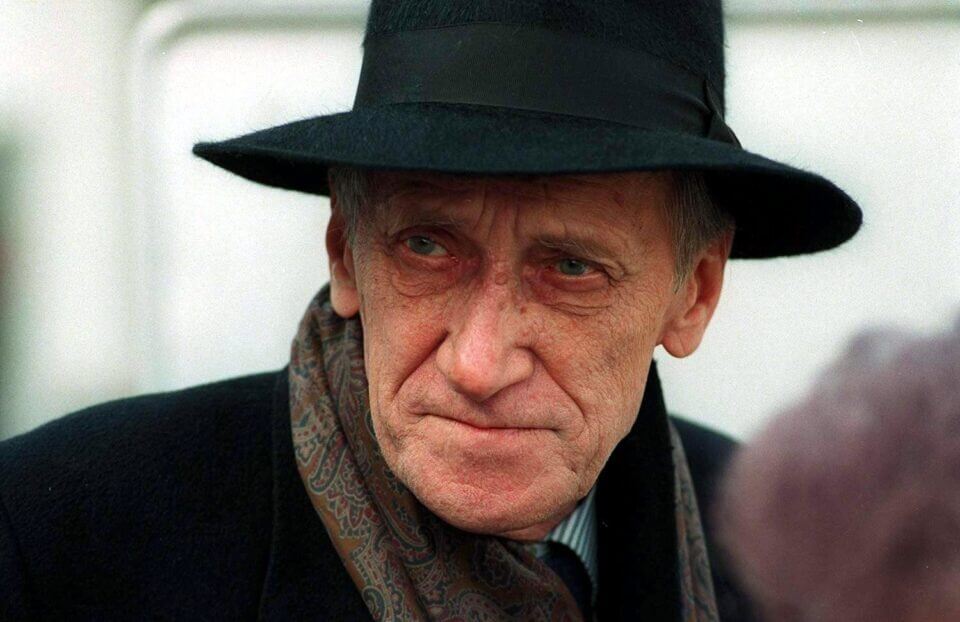
“I would argue that we must vigilantly guard against viewing ourselves as gods or otherwise infusing and inflating our fallible natures and politics with a divine authority.”
I was very appreciative to have Matt McManus indulge my pretenses at engaging in political and religious philosophy through publishing his excellent reply to my comment on his work. McManus made some very salient points, and I appreciated the clarification of his argument and targets of his critique. His comments on the Protestant roots of some of the figures whom I ascribe to Gnosticism is especially worth further comment and research some time in the future. Perhaps appropriately, considering the topic, I would like to beg for more indulgences and extend the conversation away from the book The Monstrosity of Christ to comment more generally on the question of ontological incompleteness. This is perhaps the area that I feel is most interesting about our dialogue and most relevant to my own work and research.
Whose Ontological Incompleteness Is It, Anyway?
First of all, I should say that McManus is correct in drawing attention to the difference between some more orthodox readings of Marx and Hegel as theorists of the absolute, and Žižek’s own reading. Žižek (drawing heavily on Lacan), within his more theoretical works such as Less Than Nothing and The Sublime Object of Ideology, stresses the ontological gap within every conceptual framework that the individual is able to arrive at regarding the world and his place within it. As McManus points out, Žižek sees this incompleteness as being a product of the material world itself and has—in more recent works—started to explore quantum physics, seemingly in support of this. A form of ontological incompleteness is also, however, a position which a number of perennial, broadly conservative, and religiously influenced theorists also hold, some of whom I mentioned in my previous essay.
Voegelin also professes ontological incompleteness yet identifies the ontological “gap” between the self and the absolute as emerging from a different origin point than Žižek’s materialistic view. Voegelin, instead, stresses the interrogating effect on the individual that the existence of the transcendent (or absolute) necessitates by our attempts to conceive of it. He sees this effect of the transcendent as being the actual source of the psychological experience of ontological incompleteness (rather than it being constituted within the material world itself). Therefore, we are aware of our relative incompleteness owing to our encounter with this transcendent completeness extrinsic to us. He states that there is always an “extra” question that this transcendence raises against the sedimented ideological positions (psychological, political, or otherwise) adopted by the ego of the individual subject. Voegelin also states that the existence or non-existence of this transcendent question, which disturbs the psychological complacency of the subject, constitutes the difference between the authentic philosopher and the ideologist. For Voegelin, those who resist the question and, therefore, resist both transcendence and their own relative incompleteness become reduced to mere ideologists: dogmatic and self-enclosed worshippers of theoretical idols, rather than true thinkers.
This symbiotic relationship between the realization of our ontological limits and the encounter with transcendence is also a position held by perhaps the most preeminent critic of Marxism, Leszek Kołakowski, whom (as an aside) Zizek himself was a fan of and once wrote a never-translated-to-English obituary in Polish in response to his death. Kołakowski also stresses the limitation and incompleteness which the existence of transcendence places on the human experience:
“When culture loses its sacred sense, it loses all sense. With the disappearance of the sacred, which imposes limits on the perfection that can be attained by secular society, one of the most dangerous illusions of our civilization arises—the illusion that there are no limits to the changes we can undergo, that society is an endlessly flexible thing subject to the arbitrary whims of our creative capacities.
In the end, as I have written in the essay ‘The Revenge of the Sacred in Secular Culture,’ this illusion sows disastrous despair. The modern chimera, which would grant man total freedom from tradition or all pre-existing sense, far from opening before him the perspective of divine self-creation, suspends him in a darkness where all things are regarded with equal indifference.
To be totally free from religious heritage or historical tradition is to situate oneself in a void and thus to disintegrate. The utopian faith in man’s self-inventive capabilities, the utopian hope of unlimited perfection, may be the most efficient instrument of suicide human culture has ever invented.”
Both sets of theorists, therefore, emphasize the truth of a questioning and self-negating ontological incompleteness. They see a dialogue between totality and particularity in contrast to a sedimented and closed ideological position; however, they see these as coming from a different point of origin. For Žižek (and McManus), it is the material world itself that posits this ontological incompleteness as a necessity. Within their readings (and I beg forgiveness if I misinterpret them), the real menace to the world is to try and impose a static, predetermined sacred order on earth using the idea of transcendent or sacred order as a justification for this: “This must be done as so because it is ordained so by God.” This is the threat that I believe McManus perceives in the emerging worldview that seems to be a sort of Catholic integralism, which he names in relation to theorists such as Adrian Vermeule, Alasdair MacIntyre, and Patrick Deneen (though, I perhaps might dispute whether this is fair to the latter two). As for his own, more atheistic view, belief in the transcendent itself is seemingly at best a mere comforting mirage and, at worst, a justification for tyranny and an overdetermined view of social order.
In contrast, theorists such as Voegelin, Augusto Del Noce, and Kołakowski see the de-legitimizing of transcendence as a factor within subjectivity as essentially being the disappearance of the ability to recognize our own (or our political) limitations and, therefore, to see our incompleteness. This inability leads (in their view, and my own) to a drift towards utopianism and, at worst, to eventually spawning the sort of ideological totalitarianism that they identify with the deathly movements of the 20th century. I have argued in a previous article that this is a partial cause of the identitarian malaise (both left and right-wing) which we currently find ourselves embedded within.
In fact, I believe that despite appearances, there may be some similarities between my and McManus’s position—in terms of our target, rather than our methods.
Psychology, Narcissism, and Ontological Incompleteness
As I am a transpersonal psychotherapist, one will—I hope—forgive me if I cannot help but see this contest of worldviews in terms that address both the psychological and transpersonal aspects behind these philosophical questions. In fact, I believe that despite appearances, there may be some similarities between my and McManus’s position—in terms of our target, rather than our methods. Although at first glance, it may seem that we are approaching this question as binary opposites, I believe that psychologically, our positions address the same potentially dangerous tendency within the psyche. This tendency being the adoption of a sort of narcissism that centrally confuses one’s own particular immanent position with that of an absolute or transcendent truth; in a more transpersonal description, it is the act of turning oneself or one’s own particularly favored brand of political ideology into an unquestionable, dogmatic, and idolatrous position.
Idolatry
McManus is correct—I believe—when he identifies that a potential problem with more conservative and theologically-informed paradigms is the way in which those who adopt these worldviews are potentially able to employ their belief in an immutable transcendent order as ideology, identifying their own immanent political positions and egoic positions with the divine. In doing this, they are potentially able to say that they are given a mandate beyond that of a mere fallible human being because they are the representatives of a higher order. On Earth, it should be as it is in Heaven. This, when taken to an extreme, becomes a sort of “idolatry” where a constrictive rigidity prevents any change and suffocates society as a result.
I believe that, despite first appearances, this concern actually forms a parallel and complementary position with the issues which Voegelin, Del Noce, and Kołakowski have with the attempt to “kill” the transcendent (as so approvingly expounded by Žižek). This move is framed by these more conservative theorists as being a similar attempt at “idolatry”: an attempt to merge or conflate one’s own immanent personal or political position with the divine and, as a result, live life with absolutely no obligation to any transcendent principles, attempting instead to lead a life of pure utopian freedom and progress (as McManus describes as a goal at the end of his response essay). This time, the “merger” is achieved via the opposite maneuver to the conservative dissolving of one’s egoic self into becoming a mere vessel of the transcendent. Instead, an absolute denial of the existence of transcendence (as a factor in subjectivity distinct from humanity) is adopted. This, as a result, also gives birth to striving towards a vision of a perfect, utopian, desalinated existence: a striving towards an entirely affirming relationship with the world around us, free of obligation or limitation, even if this is—as in the case of Žižek—acknowledged as ultimately a mirage.
On one side, therefore, the immanent entirely merges itself into the transcendent and, therefore, becomes (in its own eyes) a mere channel for God and is, consequently, infused with His authority. On the other, the transcendent is entirely merged into the immanent, and the individual becomes (in its own eyes) the supplanter of God. In both cases, the disturbing alienation and anxiety inherent to the human condition and the ontological incompleteness that underlies this condition (the tension which Kołakowski describes as so pivotal to existence) are eliminated through the ideological denial and collapse of this profound duality within the psyche. I believe that the Hegelian movement of the “killing” of the transcendent is a central moment in which this collapse is enacted, despite Žižek supposedly maintaining a fidelity to ontological incompleteness. By the movement of the killing of the transcendent (and the removal of the distance between the sacred and the profane), the collapse has begun, and the downward spiral towards the narcissistic and utopian revolutionary ideologies that have blighted our recent history is set in motion. The narcissistic and ultimately unattainable movement toward self-deification begins.
Holding the Opposites and Resisting Inflation
In contrast to these two narcissistic attempts at merging with the absolute, keeping the distance between the transcendent and the immanent provides a less utopian, more tragic, more ambiguous yet more mature psychological position—one which psychologically does not run the same risk of narcissistic inflation. In order to do this, we must recognize the value of both progressive and conservative positions, transcendence and immanence. To quote Kołakowski once more from his 1990 book Modernity on Endless Trial:
“The role of the sacred has been a conservative one. It simply reaffirmed and stabilized the structure of society—its forms and its system of divisions, and also its injustices, its privileges and its institutionalised instruments of oppression. There is no sense in asking how the sacred order imposed on secular life can be maintained without maintaining its conservative force; that force can never be detached from it.
The question is how human society can survive in the absence of conservative forces; in other words, without the constant tension between structure and development. This tension is proper to life; its dissolution would result in death, either by stagnation (if only conservative forces remained) or by explosion (if only the forces of transformation remained, in a structural void).”
Kołakowski describes an ambiguous tension between the pull of the two inflated, narcissistic extremes. This sentiment is one that finds supporting parallels from various places within individual psychotherapy and psychoanalysis. Melanie Klein describes the depressive position of the mature personality as being an ambiguous resolution of the polarized and more infantile schizoid position, in which the narcissistic extremes of a purely good and purely bad internal object are experienced and projected onto external objects and people encountered in the external world. The post-Jungian psychologist James Hillman also talks of a similar conflict between structure and development that Kołakowski does, through his description of the twin archetypal complex of the “Puer” (the eternal youth) and the Senex (the old man). Those who are possessed by the Puer are inflated with the idea of unlimited novelty, have no ability to conform to alienating structures, and live a life of unfulfilled potential and inflated imagination. The Senex, on the other hand, consists of concrete, immovable rules and conventions that suffocate the creativity and flexibility of the individual.
Conclusion
We can see in these psychological figures the “death by explosion” and “death by stagnation” that Kołakowski describes. The conservative attempt to become the absolute by identification with the transcendent order consists of a death by stagnation (Senex). The progressive attempt to become the absolute by killing God leads to a death by explosion (Puer). I would argue that we must vigilantly guard against viewing ourselves as gods or otherwise infusing and inflating our fallible natures and politics with a divine authority. Instead, through holding these two opposite poles of subjectivity without being pulled into either of these extremes, we find the ambiguous and necessarily vulnerable experience of being truly human.
Nick Opyrchal is a psychotherapist in private practice. For his M.A., he researched the intersection between Lacanian and transpersonal perspectives in psychotherapy. His current doctoral work investigates the intersection of identity politics and the transpersonal within psychotherapy.










